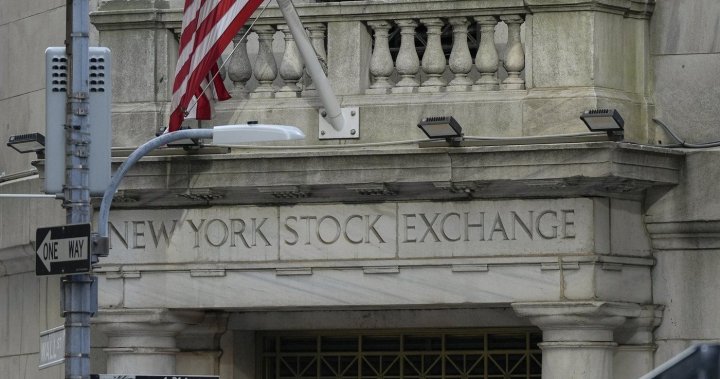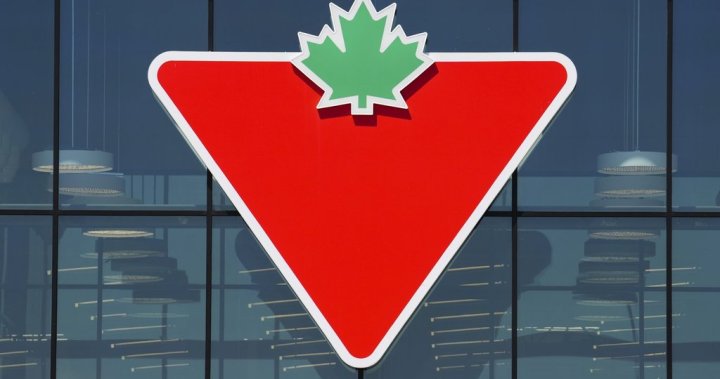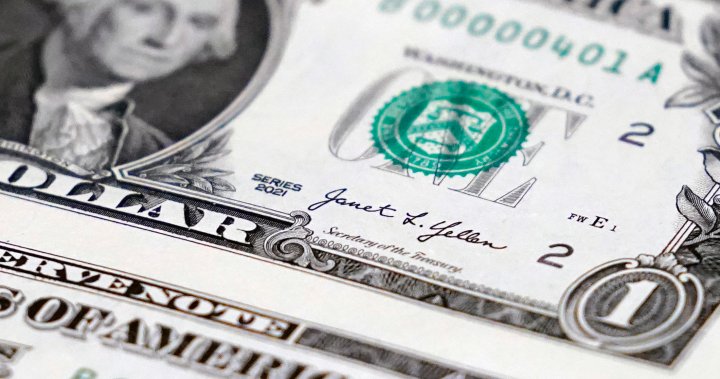Poilievre pledges to reverse Liberals’ capital gains tax changes if elected – National

Conservative Leader Pierre Poilievre on Thursday promised to reverse the Liberal government’s controversial changes to capital gains taxes if he takes power in the next federal election.
He made the pledge in Vancouver, where he spoke about the need to reduce the tax burden on Canadians and businesses to gird the economy against the coming Donald Trump presidency in the United States.
If elected prime minister in the next federal election, Poilievre said he would impose a “bring it home” tax cut to reduce taxes on energy, investment and building homes — “making stuff” broadly.
“And now, more than ever, we need it,” Poilievre said. “President Trump has said he wants to tariff our country. We cannot afford economically destructive Liberal taxes that will drive even more business and jobs out of our country.”
The Liberals’ capital gains tax changes are currently in limbo, as legislation to put the measures in force did not pass before Parliament was prorogued. But the Canada Revenue Agency has indicated it will follow precedent and administer the changes according to the Liberal proposal.

Liberal MP Anthony Housefather said in a post on X Thursday afternoon that he would like to see Liberal leadership candidates direct the CRA to not enforce legislation before it’s passed by Parliament, and “drop” the planned capital gains changes altogether.
One economist who spoke to Global News warned the reversal on capital gains changes would leave a sizeable hole in the federal budget that would require new revenue sources or significant spending cuts to fill.
What are capital gains, again?
Capital gains refer to proceeds from the sale of an asset like stock or a piece of property. In the 2024 federal budget, the Liberals proposed to raise the inclusion rate — the portion subject to tax — on the sale of capital gains to two-thirds from one-half for all corporations and many trusts.
Individuals will continue to pay the 50 per cent inclusion rate on capital gains up to $250,000 in a year, but proceeds realized above that threshold will face the higher 66.7 per cent rate.

Get weekly money news
Get expert insights, Q&A on markets, housing, inflation, and personal finance information delivered to you every Saturday.
The Liberals billed the changes as a move to promote “tax fairness” and close a loophole that helped the wealthiest Canadians avoid taxes on capital gains.
But some business groups pushed back against the changes as penalizing farmers in the process of succession planning and doctors who incur capital gains as part of their practices.
While Canadians’ primary residences remain exempt from capital gains taxes, those with a secondary property such as a cottage may face the higher inclusion rate in a given year.

Are capital gains a ‘jobs tax’?
Poilievre branded the Liberal proposal to increase the taxable portion of capital gains as a “jobs tax.” He cited a C.D. Howe report released last week that claimed some 414,000 jobs would be lost in the years following the capital gains tax changes.
Jack Mintz, the author of that report, wrote that raising the capital gains inclusion rate would deter business investment in Canada, resulting in a stark decline in gross domestic product and employment, with “most of the adjustment within five years.”
“Clearly, the impact of the capital gains tax hike is substantial and another hit on Canada’s productivity and economic growth on top of other tax increases and, more important, regulatory obstacles to investment,” he wrote.
Randall Bartlett, deputy chief economist at Desjardins, told Global News that the job losses projected in the C.D. Howe report and in Poilievre’s claims are long-term changes. While the estimates could be accurate in a vacuum, Bartlett said the analysis overlooks the jobs created by spending on programs fuelled by the capital gains changes, which would “offset” such impacts.
The capital gains changes were expected to bring in $19.4 billion annually, a key pillar funding other spending plans in the federal budget. The parliamentary budget officer said the actual proceeds from the measures could be billions less than the Liberals expected.

The Liberals’ fall economic statement tabled last month, which already showed a higher overall path for the government’s deficit, baked in the expected proceeds of the higher capital gains inclusion rate.
Removing that source of revenue would leave a hole for a Conservative government to fill, Bartlett said.
“It really is going to be a challenge to rein in overall debt as a share of the economy if this revenue is lost,” he said. “More revenue would have to come from elsewhere or spending would have to be cut sufficiently to offset the lost revenue.”
Some scrutiny over capital gains tax changes has focused on Canada’s lagged productivity and GDP per capita compared to the U.S. since the COVD-19 pandemic.
Bartlett said that policies that raise tax rates on capital discourage business investment in a jurisdiction. Businesses are less inclined to give their workers new capital to work with if they feel they’re going to be taxed higher on that amount.
The Council of Canadian Innovators, a group of tech leaders in Canada, said last year that the capital gains changes are “hiking taxes on investment.”
Capital gains tax changes could be seen as a step “in the wrong direction if one wants to increase capital investment and increase long-term productivity in Canada,” Bartlett said.
What does this mean for tax filing?
If the Conservative government does scrap the planned capital gains changes after an election sometime this year, it could cause some whiplash for taxpayers depending on how they file their returns in the months ahead.
The Liberal government never formally passed the capital gains tax changes into law amid a Conservative filibuster in the fall and the prorogation of Parliament at the start of this year. But because the measures were tabled in a notice of ways and means motion last year, the Canada Revenue Agency said it intends to administer the changes according to the Liberal proposal in the upcoming tax season.
If the legislation is abandoned when Parliament resumes in the spring or after a federal election — the latest one can take place is October — the CRA will cease administering the changes, spurring some confusion for taxpayers preparing their 2024 returns.
“It’s unfortunate because it makes it very difficult for individuals and businesses to plan around around the sale of their assets or declaration of capital gains,” Bartlett said.
The Canadian Chamber of Commerce also said earlier this week that Ottawa ought to pre-emptively scrap the capital gains changes to give taxpayers clarity before they file this year.

© 2025 Global News, a division of Corus Entertainment Inc.








